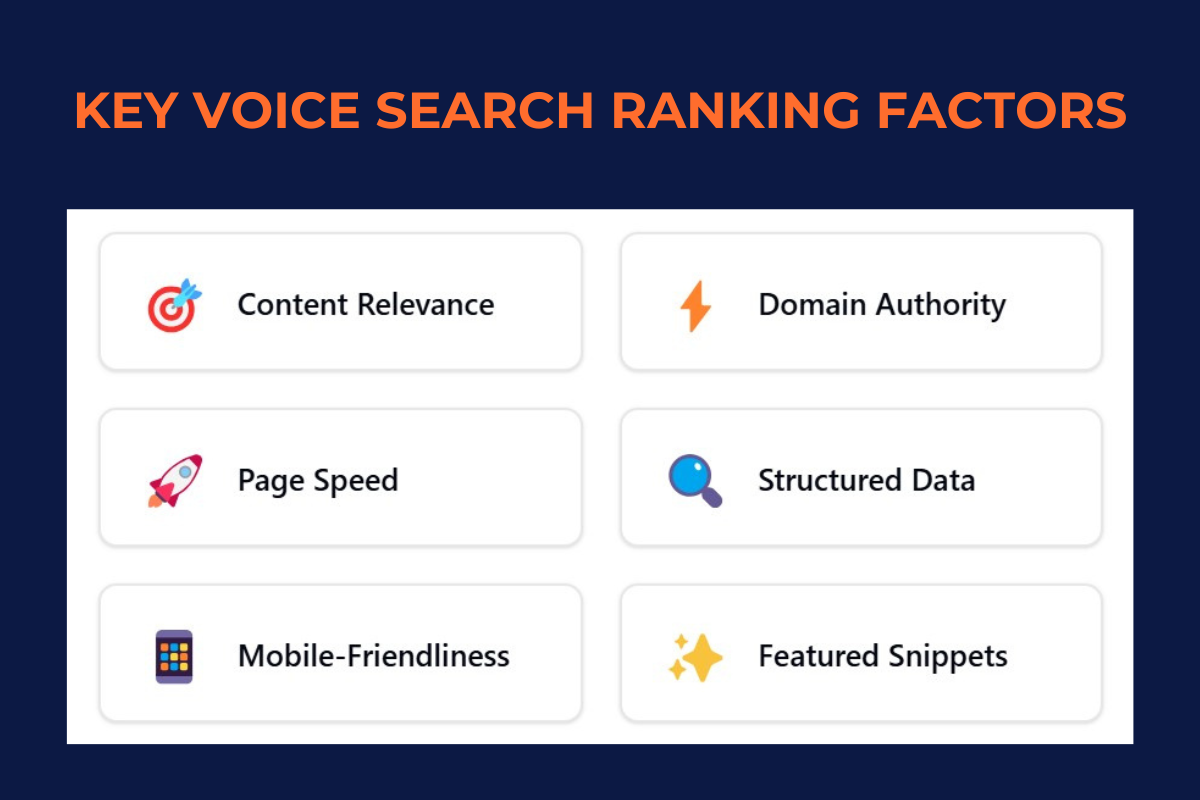More people than ever are using their voices to search the internet. Instead of typing on a keyboard, they ask their phones or smart speakers questions like, “Where’s the nearest coffee shop?” or “How do I bake a chocolate cake?” This is called voice search, and it’s definitely changing the way websites need to be optimized for search engines, as we speak – so to say. So is there anything you can do when it comes to voice search and SEO? Indexed Zone SEO experts say – of course, there is.
If you want your website to show up in voice search results, you need to focus on voice search optimization. This means you should make sure your content is easy for voice assistants like Siri, Alexa, and Google Assistant to find and read out loud. We’ll explain how voice search works, why it matters, and the best ways to optimize your content for it. Wandering why you should do it? Here are a few reasons:
The Importance of Voice Search Optimization
Voice search is no longer a futuristic trend—it’s a mainstream way of searching the internet. As of 2025, 20.5% of the global population actively uses voice search, making it a crucial factor for businesses aiming to maintain visibility in search results. In the U.S. alone, 58.6% of consumers have used voice search, and 71% prefer it over typing due to its speed and convenience.
If your website isn’t optimized for voice search, you’re missing out on a massive audience. With 75% of U.S. households projected to own a smart speaker this year, voice-based searches will continue to surge. Here’s why voice search optimization is essential:
- It helps you reach more people: More users are relying on voice assistants like Siri, Google Assistant, and Alexa to find information quickly. If your content is optimized for voice queries, you increase your chances of appearing in search results.
- Voice search is growing at an unprecedented rate: The way people interact with search engines is evolving, and businesses must adapt to stay relevant. As AI-powered assistants become more sophisticated, users expect faster, more conversational responses to their queries.
- It improves your chances of ranking for featured snippets: Google frequently pulls voice search answers from featured snippets, also known as position zero. These snippets provide concise, direct answers to user queries, and voice assistants prioritize them when delivering spoken responses. Websites with clear, structured content are 2X more likely to be selected for voice search results.
- Local businesses benefit the most: With 76% of voice searches for local businesses leading to a visit within 24 hours, optimizing for local SEO can directly boost foot traffic. Ensuring your Google Business Profile is updated, using natural language in content, and incorporating “near me” phrases can increase discoverability.
Voice search is not just a trend—it’s the future of SEO. Businesses that embrace voice optimization will stay ahead of competitors by aligning their content with how people actually speak and search. 🚀

Voice Search 101
Voice search allows people to search the internet by speaking instead of typing. This is made possible by smart devices like smartphones, smart speakers, and even some cars. Instead of typing “best pizza place near me” into Google, a person might say, “Where can I get the best pizza nearby?”
There are a few key differences between voice searches and text searches:
- Voice searches are longer and more conversational. People tend to speak in full sentences instead of short phrases.
- They often start with a question. Many voice searches begin with words like who, what, where, when, why, or how.
- They are usually local. Many people use voice search to find nearby businesses, such as restaurants, stores, or gas stations.
Because of these differences, businesses and website owners who want results for voice searches as well, need to adjust their SEO strategies to match how people actually talk.

How to Do SEO for Voice Search the Right Way
If you want to build discovery and relevance for search engines through voice search, you need to optimize it properly.
When people use Google Assistant, Siri, or Alexa, they’re having a conversation, not typing keywords. Think about it – you wouldn’t say to your friend “pizza restaurant Chicago downtown.” You’d ask, “Do you know any good pizza places in downtown Chicago?” This natural way of speaking is exactly what your website needs to match.
Write Content for Voice Search
Remember passing notes in class? They were short and choppy: “Movie tonight?” But when you talked to your friend after class, you said, “Hey, do you want to go see that new movie tonight?” Voice search is just like that difference.
People don’t say: “best restaurants New York 2025” They ask: “What are the best restaurants in New York this year?”
To make your content voice-search friendly, you need to:
- Write like you’re having a conversation, not creating a keyword list
- Use complete questions and answers, just like real people do
- Keep things simple and easy to understand – think “explain it to a friend” level
💡 Pro Tip: Next time you’re writing content, try saying it out loud first. If it sounds like something you’d actually say to someone, you’re on the right track!

Answer Questions Like a Real Person
Think about when someone asks you a question. You don’t start with background information – you give them the answer right away! Voice search works the same way. Most searches start with the basics: who, what, when, where, why, or how.
Here’s how to nail this approach:
- Create a FAQ section that actually answers real questions (not just marketing fluff)
- Organize your content with clear headers that ask real questions
- Keep your answers short and sweet – around 29 words is perfect (about as long as you’d take to answer someone face-to-face)
💡 Pro Tip: Want to know what questions to answer? Check out Google’s “People Also Ask” section for your topic. These are real questions from real people!
Get Featured in Voice Search Results
Ever notice how Google sometimes shows an answer in a box at the top of search results? That’s called a featured snippet, and it’s like winning the lottery for voice search. When someone asks Google Assistant or Alexa a question, they often read from these snippets.
To increase your chances of getting featured:
- Put your best answer right at the top – no one likes waiting for the point
- Use bullet points and lists to break things down clearly
- Keep everything super clear and factual – like explaining something to a friend
💡 Pro Tip: Running a recipe site? Break down your instructions into clear steps. Instead of a paragraph about making cookies, list out each step like you’re teaching a friend to bake.
Make Your Site Quick and Mobile-Friendly
Here’s the thing – most people use voice search on their phones. And you know how annoying it is when a website takes forever to load or looks terrible on your phone? Google knows that too. That’s why fast, mobile-friendly sites get priority in voice search.
Your site needs to:
- Load super fast – aim for under 2.5 seconds (about as long as it takes to say “Hey Google”)
- Pass Google’s Mobile-Friendly Test with flying colors
- Have images that load quickly without hogging data
💡 Pro Tip: Before you upload any images to your site, run them through tools like TinyPNG or ShortPixel. They’ll make the files smaller without making them look worse – like magic! Use Google PageSpeed Insights – it’s like having a speed coach for your website!
Speak Google’s Language with Schema Markup
Think of schema markup as a special language that helps Google understand your website better. It’s like providing subtitles for your content. This structured data tells search engines exactly what your content means, not just what it says.
The most helpful types of schema for voice search are:
- FAQ Schema – Makes your question-and-answer content crystal clear
- Local Business Schema – Perfect for showing up in “near me” searches
- How-To Schema – Great for step-by-step instructions
💡 Pro Tip: Own a restaurant? Make sure your schema markup includes everything someone might ask about – your hours, location, menu, and whether you take reservations. It’s like having a virtual host answering questions 24/7!
Voice Search Ranking Factors – The 6 Golden Rules of Voice Search Success
Remember back in school when some teachers just clicked better with students? They explained things so clearly that everything made sense. Well, voice search is a bit like that – there are certain things that make Google and other voice assistants really “click” with your website. Let’s break down what makes your site the teacher’s pet of voice search!

1. Content That Speaks Human
Key technical factors for voice-optimized content:
- Natural language processing compatibility
- Question-answer format structure
- Reading level optimization (9th grade or lower)
- Clear content hierarchy
2. Building Trust and Authority
Just like you trust recommendations from a friend who really knows their stuff, Google trusts websites that have proven themselves reliable. To build this trust:
- Be the expert in your field – share knowledge that shows you know your stuff
- Get “recommendations” (backlinks) from other trusted websites
- Keep your content fresh and updated, like a good friend who’s always in the know
3. Speed – Because Nobody Likes Waiting
Imagine asking someone a question and they take forever to answer – annoying, right? That’s how Google feels about slow websites. Your site needs to:
- Load faster than you can say “Hey Google” (under 2.5 seconds)
- Have images that don’t take forever to appear
- Work smoothly no matter what device someone’s using
4. Speaking Google’s Special Language (Schema Markup)
Schema markup helps search engines parse your content more effectively. Critical for voice search success through:
- Clear content classification
- Enhanced data organization
- Improved search result accuracy
- Better voice assistant interpretation
5. Making Your Site Mobile-Perfect
Most people use voice search on their phones, so your website needs to look amazing on mobile:
- Make everything adjust perfectly to any screen size
- Keep buttons big enough for fingers to tap easily
- Skip those annoying pop-ups that make mobile users want to scream
6. Winning the Featured Snippet Game
Featured snippets are crucial for voice search success, appearing in over 40% of voice search results. They’re particularly powerful for:
- Question-based searches
- Definition requests
- Step-by-step instructions
- Comparative queries
The Big Picture
Think of all these factors like ingredients in your favorite recipe – they all work together to make something great. Miss one, and things might not taste quite right. But get them all working together, and you’ve got a voice search success story!
Voice Search SEO Checklist: Key Takeaways
Now that you know proven strategies to boost your organic traffic, here’s the voice search SEO checklist you can use:
✅ Write conversationally – Use natural, easy-to-understand language.
✅ Target question-based queries – Optimize for “who, what, when, where, why, and how” searches.
✅ Claim your Google Business Profile – Essential for local voice search rankings.
✅ Use structured data – Implement FAQ, How-To, and Local Business schema.
✅ Speed up your website – Google prefers pages that load in under 2.5 seconds.
✅ Optimize for featured snippets – Format answers in short paragraphs, lists, or tables.
✅ Improve mobile-friendliness – The majority of voice searches happen on mobile devices.
✅ Keep content up to date – Regularly refresh articles to reflect current user search behavior.
The Future of Voice Search: What’s Coming Next?
Now that you have your voice search optimization checklist in hand, let’s peek into the future! Voice search isn’t just growing – it’s revolutionizing how we interact with the digital world. Let’s explore what’s coming next and how to stay ahead of the curve.
AI is Making Voice Search Smarter Than Ever
Remember those early days when voice assistants could barely understand basic commands? Those days are gone! With AI powerhouses like Google’s BERT and MUM, voice search is becoming incredibly sophisticated. It’s like upgrading from a basic calculator to a supercomputer – these systems understand context, nuance, and even the subtle differences in how people express the same idea.
Voice Search is Taking Over Every Device You Can Imagine
The numbers are mind-blowing: by 2025, about 75% of households will have at least one smart speaker. But that’s just the beginning! Voice search is integrating into:
- Smart TVs (“Play the latest episode of…”)
- Cars (“Find the nearest charging station”)
- Home appliances (“Preheat the oven to 350”)
- Security systems (“Show me the front door camera”)
And here’s something to think about: voice commerce is expected to hit $80 billion annually. That’s a lot of people saying “Hey Alexa, order more coffee!”

What This Means for the Future of SEO
Beyond the optimization checklist we just covered, here’s what’s coming next:
Multi-Modal Search Experiences
Voice search won’t just be about speaking and hearing – it’ll combine voice with screens, cameras, and other sensors. Imagine someone asking “How do I fix this?” while showing their device a broken appliance!
Personalized Voice Responses
AI will get better at remembering your preferences and past interactions. Instead of generic answers, you’ll get responses tailored to your history and habits.
Voice Commerce Revolution
Shopping by voice will become as normal as using a shopping cart. Websites will need to optimize not just for voice search, but for voice purchasing patterns too.
Staying Ahead of the Curve
The future of voice search is like a high-speed train – it’s moving fast and you want to be on board! Here’s how to prepare:
- Watch how different industries are using voice technology
- Pay attention to new features in voice assistants
- Think about unique ways your business can use voice interaction
- Keep testing and adapting your voice search strategy
💡 Pro Tip: Start thinking about voice search not just as a way to find information, but as a complete interaction platform for your business. How could voice technology transform your customer experience?
This is just the beginning of the voice search revolution. By staying informed and adaptable, you’ll be ready for whatever comes next in this exciting technology frontier!


